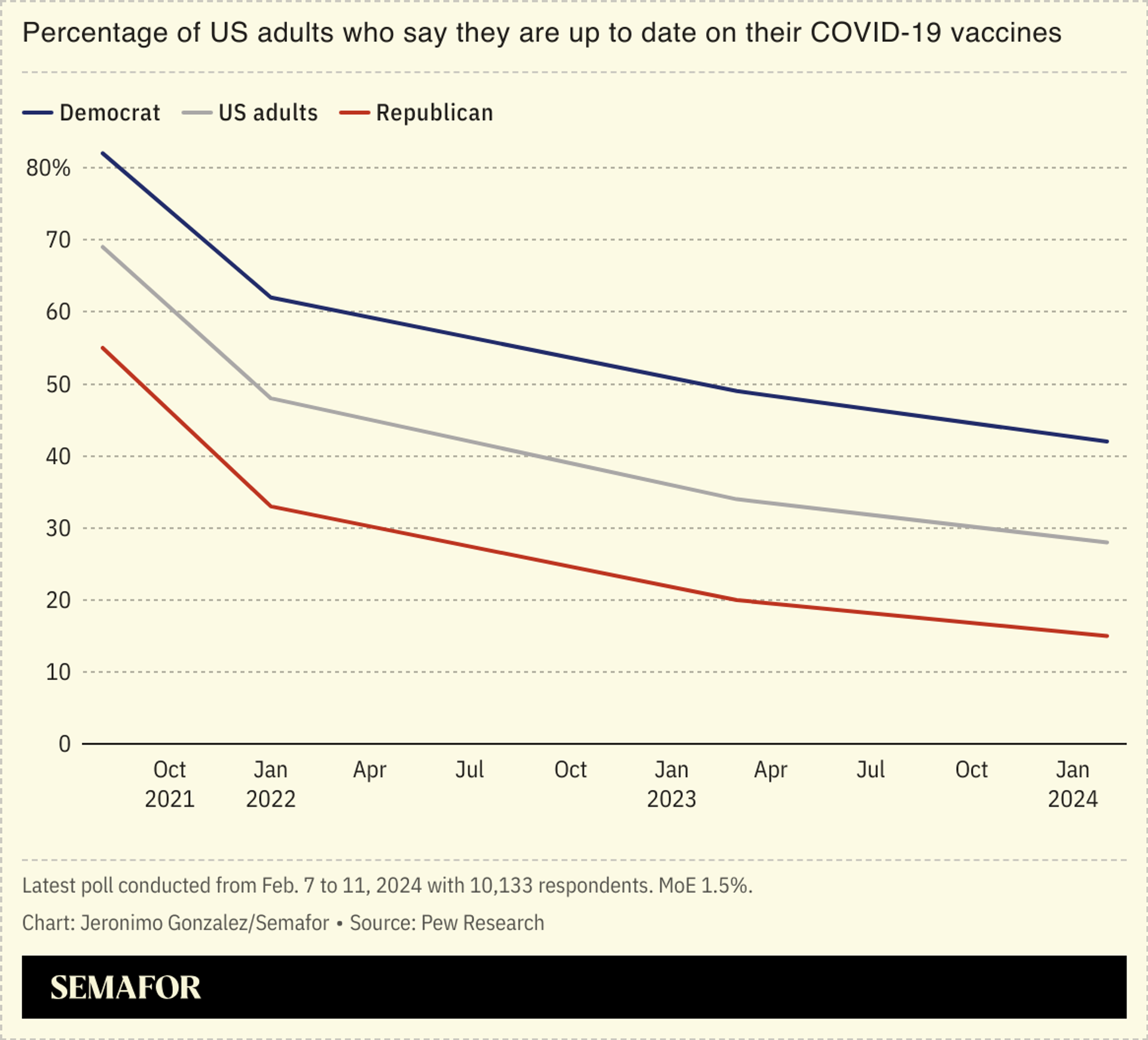The News
Montana’s state legislature will vote on a bill to ban mRNA vaccines, the latest indication of soaring vaccine hesitancy on the political right in the US following the confirmation of Robert F. Kennedy Jr. — a vaccine skeptic — to lead the nation’s health and medical science agencies as part of the new Trump administration.
Vaccines using mRNA technology rose to prominence during the COVID-19 pandemic, with the shots credited with helping to prevent and treat the disease. The same technology is being developed to vaccinate against some forms of cancer and other infectious diseases, with the scientists who first developed the tech winning the 2023 Nobel Prize in Physiology or Medicine.
Yet vaccine hesitancy in the US has soared since the pandemic, and the medical reality has similarly become increasingly apparent: One Texas county where there are widespread vaccine exemptions is currently the epicenter of a measles outbreak, while high rates of flu this season have been linked to reduced vaccine rates: Flu vaccinations were at their lowest in 12 years.

SIGNALS
Vaccine skepticism has evolved into an ‘organized political movement’
Vaccine hesitancy and the anti-vax movement more broadly is not new, one vaccine researcher told KFF Health News, but these groups have morphed into an “organized political movement” in recent years, backed by well-funded lobbying campaigns in Washington. Rates of childhood vaccinations have dropped across the country, hitting a 10-year low in 2023, while Republicans, particularly, have become increasingly open to the idea that childhood vaccines should not be mandated, and instead a personal decision for parents to make, according to Pew Research polling from 2023. Robert F. Kennedy Jr.’s appointment as Donald Trump’s health secretary underscored the fact that vaccine skepticism is “entering the mainstream of American government,” CNN wrote.
Kennedy could radically revise US vaccine policy
As health secretary, Robert F. Kennedy, Jr. has the power to broadly change vaccine policy, for example, by replacing members of the Center for Disease Control’s Advisory Committee on Immunization Practices with anti-vaccine advocates, NBC News wrote, or abolishing it entirely. If the committee recommended against children being given certain vaccines, insurers will be left to decide whether to continue coverage for them, an infectious diseases expert told the outlet. Kennedy’s nomination itself “makes people think he knows what he’s talking about,” the director of a vaccine education program told NPR, and that he “appeals to lessened trust” in medicine. Kennedy told NPR that he does not plan to “take vaccines away from anybody.”

